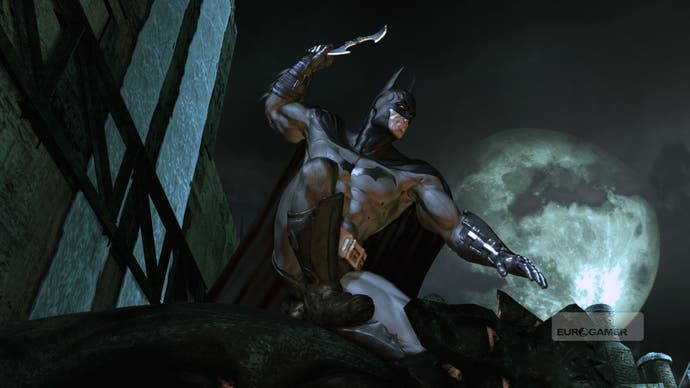Is PEGI too tough?
The ratings game.
Not so, says Zamo. "One punch or one hundred doesn't make a difference. Repetition of a particular action doesn't constitute a 'harm' in itself." However, the way in which it is presented might, such as the difference between the fantasy, comic fighting of Crash Bandicoot as opposed to the unremitting, brutal violence of Modern Warfare.
So what does this mean for the games whose ratings so baffled me in the first place? I wanted to know if the reason games were getting lower ratings on the Wii than on HD consoles was because the higher resolution made the action more explicit. As it turns out, the distinction was even smaller than that.
The 360 and PS3 versions of Iron Man 2 were rated 16 because the violence was judged to be more "realistic". Realism, in this case, isn't even based on the violence itself, but its aftermath: defeated enemies stay on the ground on the 360 and PS3, but vanish on the Wii. That can be all that's needed to nudge a game from a 12 to a 16.
In the case of Spider-Man, it turns out that the game was actually suitable for a 12 rating, right up until the last scene which was judged violent enough to change the rating.
"This is an example of a game that ultimately found itself sitting on the cusp between one rating and another," says Zamo, having retrieved the original rating documentation for the title.
"It seems that Spider-Man was, indeed, considered to be suitable at 12 save for a final scene involving multiple Spider-Men attacking a villain. Although the scene lacks any visceral element to it, it was felt to be sufficiently brutalising enough, with endless punches rained down on the villain, for it to warrant a shunt into 16."

These cases are obviously the exception rather than the rule, but they do raise important questions if PEGI is truly going to become as ubiquitous and widely understood as the BBFC ratings are for cinema.
Is the average customer on the street, that Mum or Dad looking for a game for their 12-year-old, going to be aware that the Spider-Man game is almost entirely suitable for their child, apart from one scene?
And is it fair that one child can play a game on their Wii, even if that game is Iron Man 2, while their friend has to wait four years just because their console has enough processing power to remember where enemies have fallen?
Personally, I'm still not convinced we have the right answers. I think PEGI offers a valuable service, and makes difficult decisions with, as I discovered, admirable transparency.
Clearly, the system is getting most things right. In 2010 PEGI fielded just 1684 enquiries from the public across the whole of Europe. Of those, most were apparently people asking how their consoles work or whether the ratings are a guide to the difficulty of a game ("Clearly there's some awareness work to be done on that one!" jokes Zamo). Just 115 were from people complaining about a rating.
Yet while I'm pleased to see games rated as games, rather than subjected to ratings designed for a different media, if a 16 certificate can cover everything from the benign comic book punch-ups of Spider-Man to the sweary stealth-kill headshot violence of Crysis 2, doesn't that risk making the PEGI rating a little less credible in the eyes of parents?
"I can see that some people might find it hard to comprehend the difference between [Spider-Man] and Crysis 2. However, I doubt that this in itself would lead to a wholesale loss of credibility."
"It's a subtle difference and not, perhaps, something that the average gamer would immediately recognise or understand", Zamo admits, "So I can see that some people might find it hard to comprehend the difference between [Spider-Man] and Crysis 2. However, I doubt that this in itself would lead to a wholesale loss of credibility."
I can't quite agree. If consumers find it hard to comprehend the difference between two games with the same rating, it suggests that there's a blind spot in the system. Particularly, it seems, for games that fall between the 12 and 16 ratings by relying on visceral yet non-explicit action, usually in a fantasy setting but against human foes.
I find it hard to believe that the sight of multiple dimension-hopping Spider-Mans delivering three punches to a bad guy or a digital body lying on the ground is going to cause "harm" a 12-year-old, who can already legally see far worse in live action movies. A ratings system that is too lenient will obviously cause an outcry, but moving too far in the other direction is hardly desirable either.
We're already seeing games migrate away from the middle ground where content is concerned, with inoffensive kid's titles at one end, blood-soaked adult titles at the other and very little in between.
As PEGI ratings become legally enforceable, it would be a shame if the few games that still aim to satisfy the young teen audience without pandering to gory bloodlust were placed out of reach by a ratings system designed to accommodate them.
